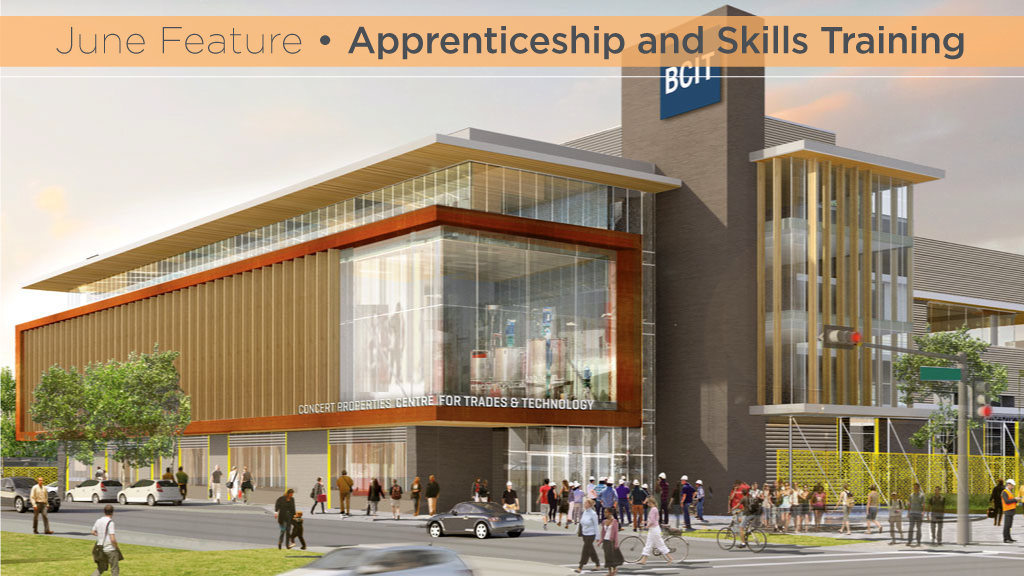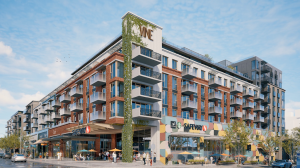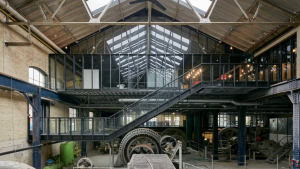A construction manager for the new B.C. Institute of Technology (BCIT)Â Concert Properties Centre for Trades and Technology, a four-storey, 7,670-square-metre building with mass timber elements, should be announced by the end of summer.
âWe are very close to awarding the contract for the construction management company,â said Wayne Hand, BCIT Dean of the School of Â鶹´«Ã½¸ßÇåion and the Environment.
The centre is the anchor of a $162.6 million Trades and Technology Complex (TTC) first phase build-out of four new trades structures and impacting 20 trades at the Burnaby campus.
âWe are currently in the consulting phase,â Hand said, as construction has not started on any of the new proposed structures in the complex.
The centre is expected to begin construction in 2025 and be complete in the last quarter of 2027. He estimates construction on the other smaller complex buildings will start in first quarter 2024 and take a year to complete.
BCIT is now currently in negotiations with the B.C. government for the second phase of construction at the complex.
Hand said under the funding formula guidelines BCIT has to raise 15 per cent of the construction costs, which it has, before the government will contribute the remaining 85 per cent. BCITâs website projects the complexâs total cost at $220 million.
Its first phase features extensive use of mass timber and also provides more training opportunities for the use and installation of mass timber construction.
As well, it also provides simulator training options, a new training feature in construction.
âI think it ties to our ability to offer courses remotely,â said Hand, as not everyone is able to travel to the Burnaby campus.
As well, simulators reduce consumables, such as those needed in teaching welding, one of the proposed simulator areas.
âIt is not the same as welding for the real thing, but it can bring a person to a certain stage of development without a lot of the expense,â he said.
The centre is designed to foster inter-disciplinary collaboration and will combine workshops, simulation, a maker space and a trades discovery centre.
Hand sees it as a facility where trade skills, research and new applied technologies merge as new construction technology is required.
Â鶹´«Ã½¸ßÇåion industry members can enhance knowledge of new or existing construction techniques for projects such as high-performance buildings, draw on masters students research on building energy and wall systems performance, and even do a mock-up of the proposed project in a lab situation. Â
The other buildings in the first phase include the Robert Bosa Carpentry Pavilion, constructed of mass timber, which will have enclosed classroom space and house mass timber construction training.
The Gantry Crane Pavilion, formerly the marine and mass timber workshop, will allow mass timber installers and marine fitters to erect large mass timber structures and prepare heavy steel mock-ups.
The marine fitting program allows steel fabricators and boiler makers to top up their Red Seal certification with applied marine fitting expertise.
Mass timber construction is seen as growth area, said Hand.
Four years ago, BCIT looked at off-site construction skills, zeroing in on mass timber construction.
The institute launched a micro-credential course in mass timber construction, code requirements and issues.
Three years later, 400 students have gone through the program.Â
Hand said there soon emerged the need for a mass timber installers course which was introduced in January 2022 as a pilot and the first group of 15 are going through with the last two weeks on campus constructing a two-storey structure this summer.
Phase one also includes a two-storey campus services building using mass timber and day-lighting or restoring Guichon Creek, an underground creek.
The second phase of the complex will include upgrading the carpentry shop, covering the 15,000-square-metre yard for the piping trade so that students can train year-round, upgrading the buildings used by the steel trades and also an expansion and upgrade of the electrical trades building.
The welding shop area is receiving some upgrade benefits by being located next to the centre and this will occur in the first phase.Â
Hand said the complex will rival any other technical institute in Western Canada, reduce wait lists for courses and provide courses ranging from trade-related discovery courses through to masters program options.
It will build capacity for 700 new full-time student spots annually.











Recent Comments
comments for this post are closed